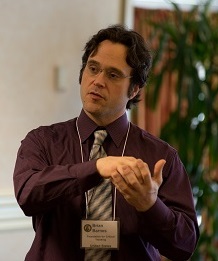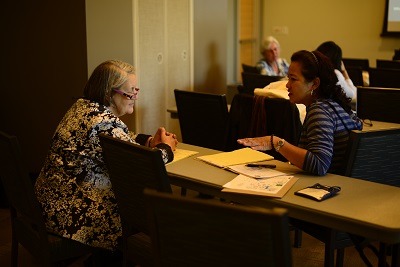




Translate this page from English...
*Machine translated pages not guaranteed for accuracy.
Click Here for our professional translations.

 Critical thinking is not a concept to be devoured in a single sitting, nor at a single conference. It is one to be savored and reflected upon. It is something to live and grow with. It shows us that part of our minds which enables us to think things through, to learn from experience, and to acquire and retain knowledge. It enables us to visit and revisit our purposes (and how we define them), our questions (and how we have framed them), our information (and where we have found it), our concepts (and how we have formed them), our inferences (and where they are taking us), our assumptions (and what they are based on), and our points of view (and how they may blind us). To think, but never to think of how we think, is a tragic waste of our potential as learners and knowers.
Critical thinking is not a concept to be devoured in a single sitting, nor at a single conference. It is one to be savored and reflected upon. It is something to live and grow with. It shows us that part of our minds which enables us to think things through, to learn from experience, and to acquire and retain knowledge. It enables us to visit and revisit our purposes (and how we define them), our questions (and how we have framed them), our information (and where we have found it), our concepts (and how we have formed them), our inferences (and where they are taking us), our assumptions (and what they are based on), and our points of view (and how they may blind us). To think, but never to think of how we think, is a tragic waste of our potential as learners and knowers.  Those who want to think critically must discover their intellects, but one cannot discover the intellect if it remains unnamed. It must be explicitly used, explicitly trained, and explicitly grounded and cultivated. When one uses his or her intellect successfully - e.g. to respond successfully to new experiences, to read and write closely and substantively, to think biologically, geographically, mathematically, sociologically, or historically, to 'open' subjects of study, and to see those subjects as systems and take command of them - then, and only then, does one use the intellect in keeping with its potential as the ultimate driving force of the life of the mind.
Those who want to think critically must discover their intellects, but one cannot discover the intellect if it remains unnamed. It must be explicitly used, explicitly trained, and explicitly grounded and cultivated. When one uses his or her intellect successfully - e.g. to respond successfully to new experiences, to read and write closely and substantively, to think biologically, geographically, mathematically, sociologically, or historically, to 'open' subjects of study, and to see those subjects as systems and take command of them - then, and only then, does one use the intellect in keeping with its potential as the ultimate driving force of the life of the mind. Please do not pass this message by.
CRITICAL THINKING IS AT RISK.
Here are some of the big reasons why:
As you see, increasingly powerful trends against the teaching, learning, and practice of critical thinking entail extraordinary challenges to our mission. To continue our work, we must now rely upon your financial support. If critical thinking matters to you, please click here to contribute what you can today.
WE NEED YOUR HELP TO CONTINUE OUR WORK.
Thank you for your support of ethical critical thinking.